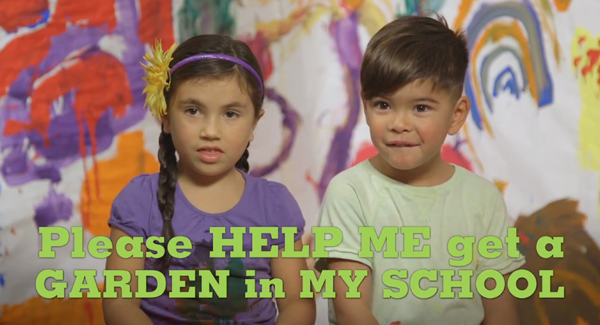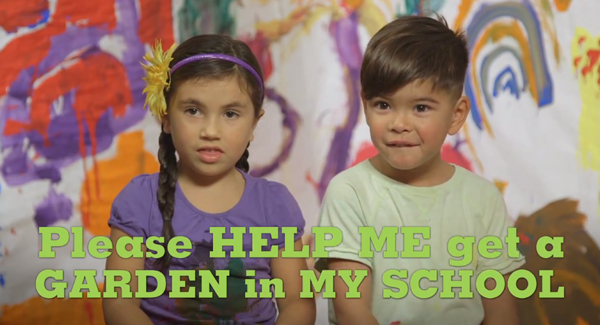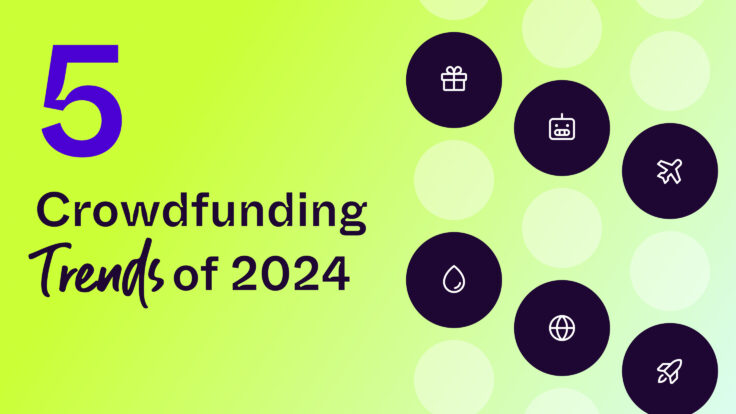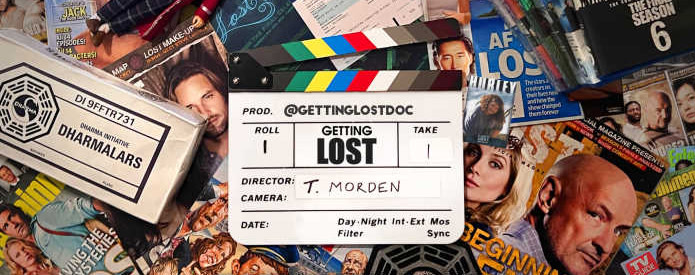Last month, we told you about our groundbreaking (pun intended) partnership with Whole Kids Foundation and the organic apparel line, PACT, called, “Urban Gardens Across America.” The goal of the project is to empower action-minded communities with crowdfunding in order to build over 70 urban gardens across America. These gardens will then serve as a source of healthy nutrition for kids while also educating kids and adults about produce and agricultural processes.
Indiegogo campaigns are currently being run by volunteer “PACTivists” in communities across America in an effort to raise $2500 to help make their local urban garden dream a reality. Less than a month into the project, campaigns are already hitting their goals and, to this day, have raised over $70,000. More than 1400 contributors have come together to make their communities greener!
Wanting to know more about what’s happening on the ground, I spoke with PACTivist Sean Roy in Portland, Oregon about his campaign and his plans for their urban garden:
Why did you decide to get involved with the Urban Gardens project?
Very honestly, when I first heard the term “Urban Garden” and this project I did not jump out of my seat and think I needed to get involved. Like many city-dwellers my primary experiences with fresh produce were in getting them from my grocers and I have always thought of fruits & vegetables production being the realm of the rural farmers. But after seeing the shocking statistics how only 2% of the kids in America are eating enough fruits & vegetables — as well as being well aware of obesity issues amongst all Americans — I read on about what impact this project might have. After digging a bit deeper (pun intended), it became clear to me that the actual food production of an Urban Garden could be considered a secondary benefit, with the primary benefit being the education about and exposure to fresh produce. I had never thought about how much more inclined a child would be to try a food that they help cultivate or that a school garden can be used to provide real-life educational space to learn about other subjects, such as the biology of camouflage (they really do this at The Rigler School).
On top of all that…did you see that video with PACT’s founder and all those kids? You’d have to be a heartless monster to not want to get that kid in the Spider-man costume a garden.
https://youtu.be/uUicv9myecI
What do you think an urban garden can bring to a community?
After spending some time with Kathryn Kocarnik over at The Rigler School Peace Garden, I was impressed with all that their garden is bringing to the community. On more than one occasion Kathryn talked about how her garden is, “planting seeds.” Obviously they are planting seeds to grow food, but she also talked about planting seeds to grow healthy kids by educating them or planting seeds that connect the school and the community with a shared space…or planting seeds to help grow compassionate kids who help the less fortunate by donating their extra food to those in need.
What’s your crowdfunding experience been like?
While not my first fundraising venture, this is my first crowdfunding experience and I have quite enjoyed it. Being both a competitive guy and a bit of a data geek, the Indiegogo tools really aided and abetted my success. Being able to keep tabs on how my fellow PACTivists were progressing with their Urban Gardens really kept me on top of my game and pushing my contacts, while at the same time it was interesting (and beneficial) to see in real-time how my Facebook Updates, Tweets and Emails were stimulating donations. It was so simple to see the activity on my links as well as conversion rates, which really helped me to focus in on how the “Do Good & Look Good” mantra was my most successful way to generate donations from my community. All the while my ability to keep all of my contributors up-to-date with updates providing such great reach into various social networks to acquire donations via credit card online. I had to laugh this weekend when I had one neighborhood kids come by recently as they went door to door to raise funds for their schools…if only they realized how much more simple it could be! Just think how many more Girl Scout cookies I could buy if my family and friends could reach me this easily!
What strategies have you used to get your community excited and involved in your campaign?
I was asked the same question by some of my fellow PACTivists and posted the below points in our Facebook Group. The vast majority of my funds have come from Friends, Family and my neighborhood (I live less than a mile from my garden) and my core strategy has been a bit of a Shock & Awe campaign to just get people aware of what we are up to and then use a couple clever tactics to convert contributions. At the end of the day, PACT has made it quite easy to convince people to donate by providing so many excellent PACT Perks. Asking people for money to educate children to eat healthy is not that tough of a sale, so the fact I can also promise them some stylish + ethical socks/underwear/t-shirts our goal was made much more achievable. Here are the strategies and tactics I had the most success with:
-
The Rick-Roll: I use SKYPE, Email and Facebook IM to send my garden link out to all sorts of friends directly, but am not very honest about what the link really is directing them to. I just ask them check out this story about (insert something they care about) or ask them to verify my new site works (I am in technology so this is believable to them). Once they realize what it is, I tell them about my garden and tell them to donate while they are there and then share the link with their friends/family. (yes, I realize that using the term “Rick-Roll” may date me a bit)
-
The Loss-Leader: At my weekly poker game I added a $25 Donation in the name of the winner to our prize pool. This gave me an excuse to talk about my garden to 10 more people and I worked 3 donations out of the group for 10 times what the $25 cost me. This weekend, I am buying $25 worth of squares at a SuperBowl Party (which if they win I will donate to our garden). Like with the poker, it will give me a reason to talk to a large group of people about my garden. Conveniently, I will have a bunch of business cards with my garden’s link on them to hand out. 🙂
-
Humor and Guilt: I’ve used Email and Facebook to (somewhat) comically remind friends, family and neighbors about all the gifts my wife and I buy for their children how may “something-a-thons” we sponsor. This has actually been a big winner for our garden.
-
Updates, Updates and more Updates: Have I told you about the Urban Garden I am raising money for so they can educate kids and the community about eating healthy? Click here to check it out! I have no doubt some people have heard enough about my garden…but it is a great cause and I am not afraid to keep putting it out there. PACT has been providing all sorts of videos and collateral for me to keep updating my Facebook and Twitter with reminders about this projects. From announcing each $500 milestone achieved, changing my Facebook Profile pic with the latest cute collateral from PACT, to encouraging people to simply donate some space on their Facebook wall by hitting LIKE to one of my posts…I would think well over a thousand eyes have been cast upon The Rigler School Garden Donation page.
In addition to my efforts, Kathryn has done a great job connecting all this to her personal, Rigler School and professional connections.
Can you tell me a little more about the workshops you hope to run this summer?
In Kathryn, The Rigler School has a Master Gardener to run their program. She stressed to me that having down months over the most productive summer growing season was both a disappointment and made her job harder as she simply had to donate her time to keep on top of the garden through the summer months. This summer she has outlined a specific program to educate all who are interested:
- Composting: benefits, the composting recipe, types of containers, worm bins, and resources for materials.
- Herb Gardening: types of herbs, when to grow, how to dry and store, and how to cook with different herbs.
- Raised Beds: Companion planting, planting schedules, and transplanting.
- Soil amendments: How to make productive and healthy natural soil
- Cooking from the Garden: Learn about the healthy benefits of different produce from the garden and how to cook it in nutritious and delicious ways.
What’s been a non-monetary benefit of your campaign?
For my personal community, raising awareness about how few kids are eating enough fruit and vegetables will benefit many children I know. I have had many people express the same amazement I had about the poor level of fruit and veg consumption amongst children and vow to do a better job with their own kids. More specifically, I had 3 moms direct message me on Facebook to tell me that (after some research) they realized their kids were not eating enough and have already made the change…that’s 5 children right there who will be healthier for sure!
For me personally, I have dropped 6 lbs since I started campaigning. While I chickened out and did not follow through on my plan to go vegetarian until my garden met their fundraising goal…I did feel that I wanted to be as best an ambassador to the cause I could and have really upped my vegetable and natural food intake during this campaign. Now I just need to make the change stick!
What’s your ultimate vision for the garden and how will the Rigler School be involved?
Ultimately, it would be wonderful if The Rigler School Garden could have Kathryn on full-time and year-around to manage the garden and increase the number of programs she has there (both with the students and the community). The garden has space reserved for the community (next to the school’s own beds) that is under-utilized right now, which is a shame. I would love to see The Rigler School Peace Garden to be fully-planted and user year around to grow healthy foods and minds…all of which would be celebrated by the students and the neighbors at Harvest Parties, of course!
Tell others about the Urban Gardens Across America project and help fund an urban garden near you!





You must be logged in to post a comment.